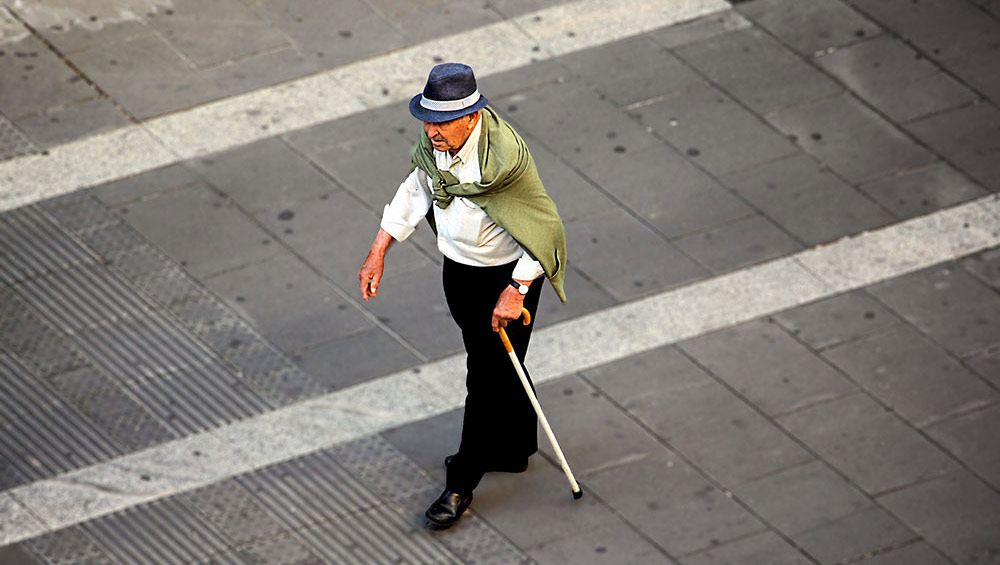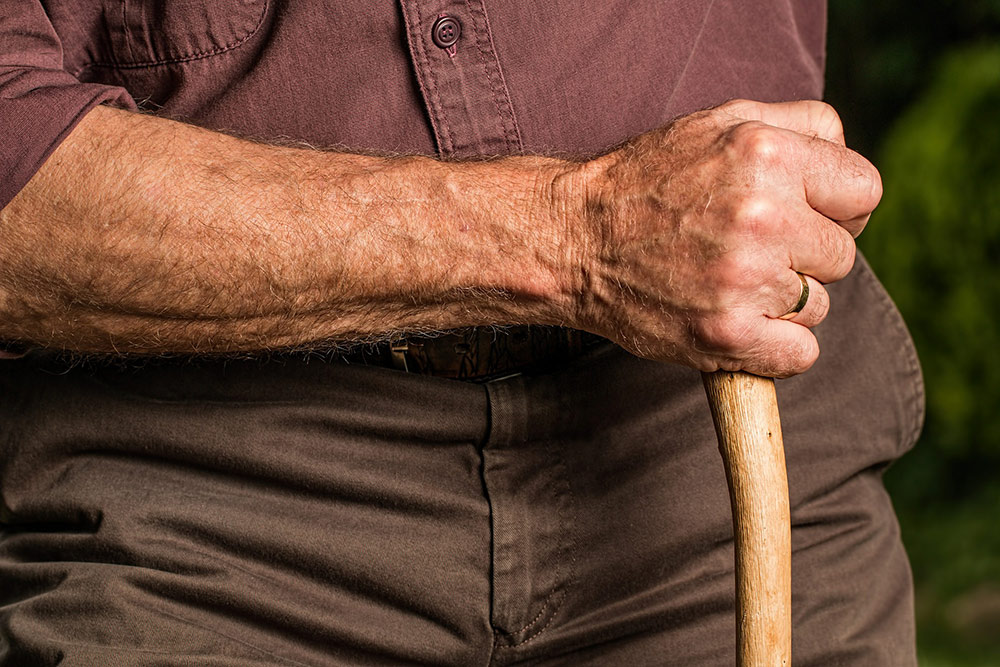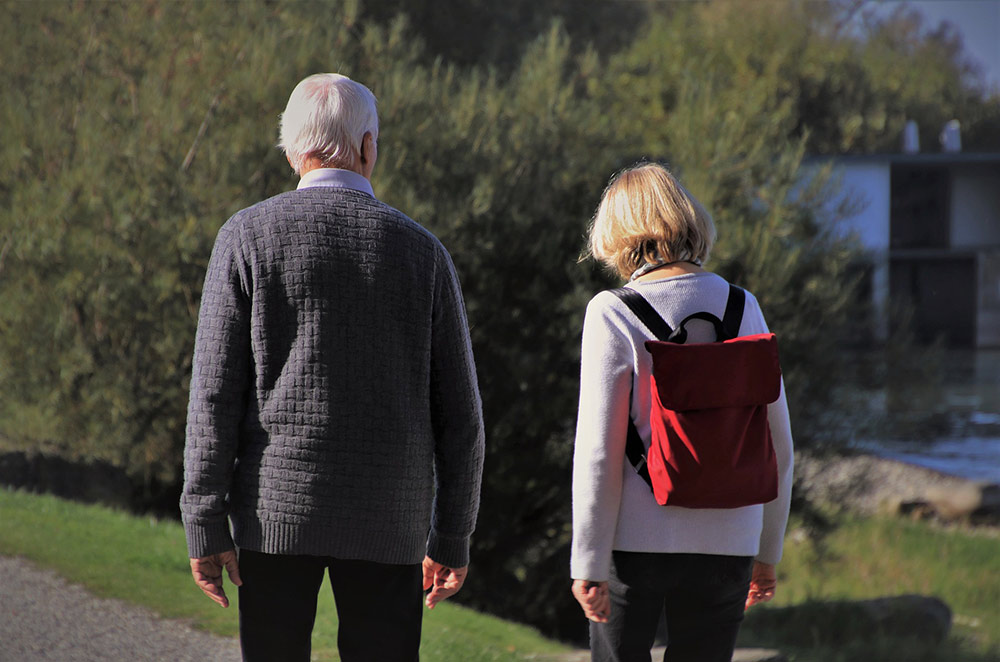Causes of Falls in Elderly and How to Prevent Them
We all fall once in a while when walking, running, or engaging in any other physical activity. However, elderly individuals fall more often than younger folks. This is a serious problem as falls can lead to catastrophic results when an elderly person is involved. To better take care of the elderly and ensure they have a long and comfortable life, it is necessary to protect them from falling.

Elderly Fall Statistics
According to the National Council on Aging, one out of four elderly Americans (age 65+) fall every year. Falls are the leading cause of fatal injury and the most common cause of nonfatal trauma-related hospital admissions among older adults. Nearly 2.8 million injuries and emergency departments are related to falls each year. This includes over 800,000 hospitalizations and more than 27,000 deaths.
What can happen when an elderly person falls?
Although most falls result in slight injuries such as sprains and bruises, some elderly falls can become more serious. These severities include broken hip, pelvis and arm bones, damage to organs such as the kidney or liver or head injuries. On occasion, elderly people who live at home can remain on the floor for long periods of time without being able to signal for help. This can lead to dehydration, hypothermia, pneumonia or other medical problems. And many elderly patients have trouble walking after a fall or recovering mentally. Even more serious falls can result in death in cases where serious head injuries can cause bleeding around the brain. For these reasons it is important to understand why and how elderly people fall and what you can do to prevent this from happening to your loved ones.
Common causes of elderly falls
To understand how to prevent falls in the elderly, we must first look at some of the reasons why falls occur in the first place.
Medication Side Effects
Oftentimes, prescribed or non-prescribed medication come with side effects like dizziness or drowsiness. Other medicines may deprive patients of proper sleep — leaving them fatigued during the day. Side effects like these make seniors more prone to falling. Seniors and their caregivers should consult with their doctors prior to taking any medication which may make them more prone to falling, in order to fully understand the side effects and potential risks.

Poor Vision
As eyesight can deteriorate with age, along with it comes the increased risk to trip over things. While a number of the elderly do not have contact lenses, a good number of those who have them have the wrong ones. They should get their eyesight and contact lenses checked once in a while to ensure they are the correct ones. It is also highly recommended for those with poor vision to use a cane or walker to aid them. However, improper use of those devices can also lead to a fall. Individuals must be properly trained on how to use their walking equipment.
The Best Shoes for Elderly Fall Prevention
Shoes with rubber soles and a good grip are highly recommended over for elderly fall prevention. Slick-soled shoes, slippers which easily come off and laces which easily come undone are not recommended. Shoes should also be comfortable and fit perfectly to reduce imbalance and pain. If a falling risk is high, seniors and caregivers can research best slippers for elderly to prevent falls or consult with their doctor for footwear recommendations.
Illness
Some types of illnesses like Arthritis and Alzheimer’s may also make an elderly person weak and cause them to lose their balance and cognitive ability. This can lead to regular falls. The treatment given to some of these illnesses could lead to pain which also increases the rate of falling for seniors. Consult with your doctor about precautions you can take to reduce the risks of falls within specific illnesses.
Preventing a fall
In addition to understanding the risk above and steps you can take to reduce the risks of falling within those causes, seniors can take additional precautionary measures to prevent tripping in order to safeguard their health.
Nutrition and Supplements
The elderly should always maintain a balanced diet which is rich in vitamin D, Calcium and Magnesium. This would help develop stronger bones and reduce the chances of tripping. While Magnesium helps in the absorption of vitamin D, vitamin D helps calcium to be utilized well in the body resulting in stronger bones.
Accessibility
The condition of an elderly person’s home should also be considered to prevent falls. Broken staircases, slippery floor tiles or even poor lighting could be the catalyst for many falling incidents. Caregivers should also clear pathways and make sure floors are clean from obstacles which could cause falls. Fixing these problems will go a long way.

Physical activity
Not being physically active will also weaken the bones and reduce balance. The elderly should try to stay engaged in physical activities to help maintain their stamina.
What to do when Elderly Keep Falling
There are a lot of factors which increase the chances of elderly falls. The first priority when a loved one falls is seeking treatment. The second priority is understanding why the person fell and preventing another one by treating disorders which can cause falls or eliminating some of the causes.
While there are some factors which can be easily fixed in the home, other ways to prevent falls will require proper supervision and assistance from a caregiver. At Mass Care Link, we can provide caregivers with a monthly payment for taking care of anyone that is 16 or older to help ensure the safety or their loved ones. Contact us to apply now or give a call at 866-880-8889.
